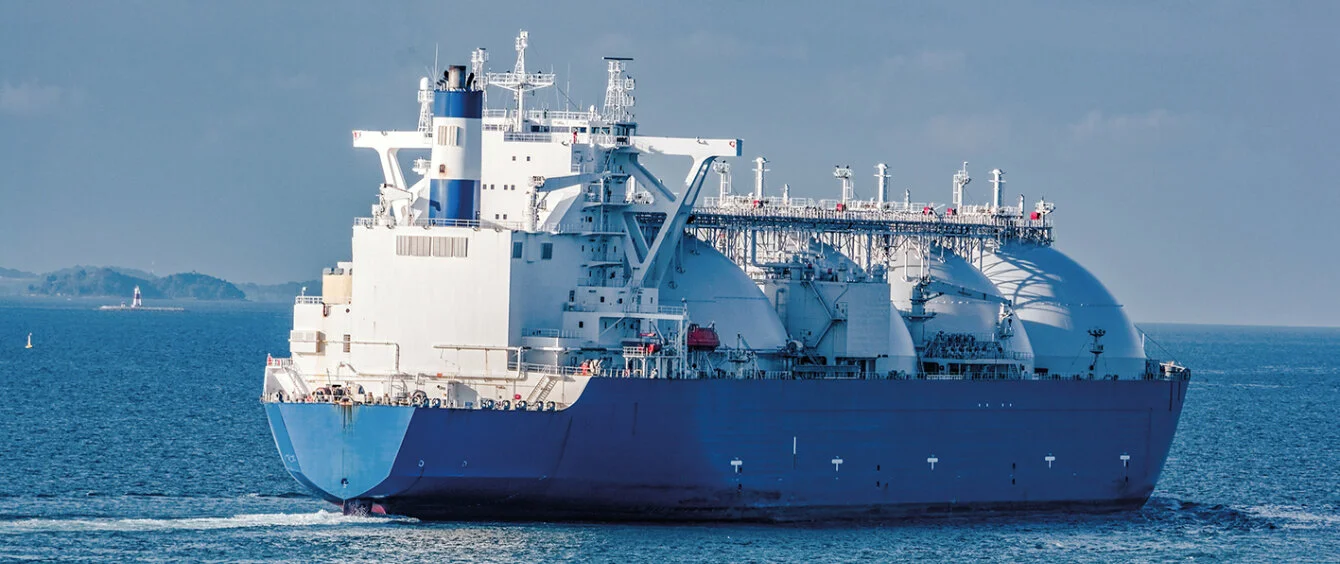Yet another European country is expanding its capacity to receive liquefied natural gas (LNG in the continent’s quest to reduce its dependence on Russian gas imports. May saw Greece begin construction of a floating LNG terminal. This means that tankers could start feeding LNG into the gas network in the port city of Alexandroupoli, which is situated in the north of Greece, as early as 2023.
Gastrade is the company commissioned by the Greek Ministry of Energy to build the nation’s autonomous natural gas system. This will involve a special ship being moored nearly 18 kilometres southwest of the Port of Alexandroupoli. Referred to as a floating storage and regasification unit (FSRU), it is equipped to receive liquefied gas from other LNG tankers and return it to its gaseous state. Shipbuilder Peter Livanos, who holds a stake in Gastrade, is having one of his tankers converted for this purpose.
LNG flows into gas grid on shore
LNG is envisaged to travel through a 24-kilometre underwater pipeline to reach land east of Thessaloniki. Another pipeline measuring four kilometres in length will take the liquid gas to a new metering and pressure regulating station where it will be fed into the Greek gas grid. Gastrade claims that up to 700,000 cubic metres of natural gas will flow into the network every hour. Extrapolated to a full year, this would equal 6.1 billion cubic metres. According to Greek gas grid operator Desfa, this roughly represents domestic consumption in 2020.
LNG started banking on LNG back in 1999. The Revithousa terminal 45 kilometres west of Athens is capable of storing 225,000 cubic metres of LNG and regasifying 1,250 cubic metres per hour. This capacity is also to be increased now. Plans have the Greek LNG terminals supplying gas not only to Greece, but to the entire Balkan region. Envisaged destinations are Bulgaria, Serbia, Romania and North Macedonia, with pipelines serving as a conduit.
Balkan states build network of pipelines
A pipeline spanning 180 kilometres between the northern Greek city of Komotini and the Bulgarian town of Stara Sagora will be commissioned as early as June and connect the Balkan state to the Greek gas grid as well as to the southern gas corridor. The pipeline will transmit gas from Azerbaijan to Italy via Georgia, Turkey and Greece. At the same time, Bulgaria and Serbia are already building an interconnector between the two countries, which is scheduled for completion by the end of 2023. North Macedonia is to receive a direct connection to the Greek gas grid as well.
“This is a very strong and positive step for our common political project because it will help to diversify our gas supplysaid European Council President Charles Michel when construction began in May. The EU is subsidising the 400 million euro project to the tune of 166.7 million euros from the European Regional Development Fund.
Existing supply chains might be expanded
The Balkans could source LNG from the USA, Qatar and Algeria, countries that are already delivering the energy fuel to the Revithousa terminal. According to Desfa, in 2020, 48 percent of gas imports originated in the USA, with Qatar coming in second with a share of 22 percent, Nigeria and Algeria following with nine precent each, and Norway, Egypt, France and the Netherlands rounding up the group.
Gastrade envisages the LNG platform near Alexandroupoli taking up commercial operation in 2023. A second terminal is already being planned. Receiving and transmission points are also in the offing in the vicinity of Corinthia, Thessaloniki and Volos.
